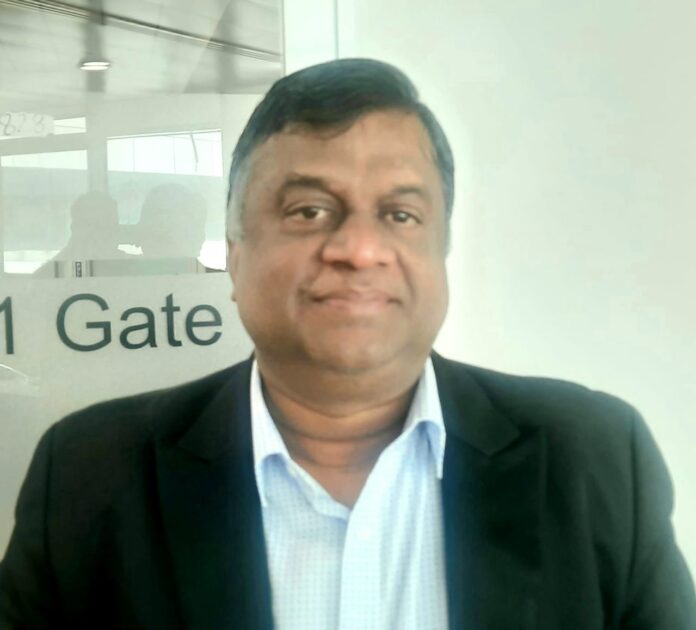Rajiv Gupta boasts a rich background of over 33 years in the Indian financial sector. Presently, he holds the position of President at PB Fintech Ltd., renowned for its Policybazaar and Paisabazaar platforms. In this role, he spearheads new strategic initiatives, shapes public policy, and oversees risk management across the group. Furthermore, Rajiv plays a pivotal role in identifying key policy and regulatory matters for the group, engaging directly with government policymakers, regulators, and industry associations. He has also represented the group at numerous forums as a distinguished speaker.
In addition to his presidential duties, Rajiv serves on the boards of several subsidiaries and directly oversees the PB Fintech account aggregator business. His professional journey commenced as a retail banker with esteemed institutions such as GE Capital, HDFC Securities, Kotak Group, and ICICI Ltd. Over the years, he has garnered extensive experience across the banking, insurance, and securities sectors.
Rajiv’s entrepreneurial spirit led him to co-found Instaremedy.com, a B2C startup specializing in consumer grievance resolution. His adeptness in translating concepts into successful ventures is evident from his tenure at SBI Life, where he played a pivotal role in the startup’s management team.
During his tenure at SBI Life, Rajiv ascended to the position of the company’s first Executive Director. In this capacity, he played a strategic role in driving India’s largest private life insurer towards its next phase of growth. Additionally, he made significant contributions to board and board committee meetings, leveraging his expertise to steer the company towards success.
In a special interaction with The Interview World, Rajiv Gupta, President of PB Fintech Ltd., discusses the evolution of the insurance industry, emphasizes the crucial role of technology in enhancing insurance operations, outlines strategies to address challenges in claim settlements, and underscores the importance of skilled workforce in driving the insurance sector forward. Here are the key takeaways from his insightful conversation.
Q: How do you see the growth and maturation of the insurance industry in recent years?
A: Over the last decade, there has been discernible progress in insurance penetration, although it still falls considerably short of the benchmarks set by developed economies. While the penetration of life insurance products is comparable, our standing remains inferior to leading nations, with a notable deficit in policy density per capita.
On the contrary, the realms of general and health insurance have yet to unlock their full potential in terms of market penetration. A comprehensive understanding of India’s demographic landscape unveils a stark reality: out of a population of 1.4 billion, a staggering one billion people reside in tier-3 cities, with an additional 280 million inhabiting tier-2 cities. This demographic skew underscores the imperative need for tailored insurance solutions accessible to residents in these regions.
While penetration rates are relatively higher in tier-1 cities, home to approximately 120 million individuals, fulfilling the Prime Minister’s ambitious vision of universal insurance coverage by 2047 hinges upon ensuring the accessibility of insurance products to the masses in tier-2 and tier-3 cities.
Achieving this monumental goal necessitates a collaborative effort between the government and private sector entities. Such collaboration should be buttressed by a range of initiatives including, but not limited to, incentivization schemes, the expansion of distribution channels, heightened visibility of insurance products, and enhanced literacy campaigns elucidating the importance of insurance coverage in mitigating financial risks.
By implementing such measures, we can catalyze a transformative shift in insurance penetration, ensuring that the benefits of insurance reach every corner of our diverse nation, thereby fostering greater financial security and resilience among our populace.
Q: How is technology positively impacting your business?
A: Technology stands as the cornerstone of Policybazaar’s inception and expansion. Its profound influence has allowed us to revolutionize the insurance landscape, facilitating the creation of innovative products, streamlining processes, and broadening our outreach to a diverse audience. The intrinsic efficiency and scalability afforded by technology have been instrumental in our journey.
However, as we venture into tier-2 and tier-3 cities, we encounter unique challenges. Despite the transformative potential of technology, its adoption in these regions is hindered by a prevailing preference for traditional, face-to-face interactions. Many individuals in these areas perceive technology as a barrier rather than an enabler when it comes to purchasing insurance.
To overcome this hurdle, we recognize the imperative of bridging the digital divide through education and outreach initiatives. By empowering individuals with the knowledge and tools to navigate the digital landscape, we aim to foster trust and confidence in utilizing technology for insurance transactions.
In essence, while technology remains pivotal in our growth trajectory, its effective integration into tier-2 and tier-3 markets necessitates a nuanced approach that acknowledges and addresses the prevailing perceptions and preferences. Through strategic measures and concerted efforts, we are committed to leveraging technology to expand our footprint and enhance accessibility to insurance products across diverse demographics.
Q: What strategies or approaches can effectively mitigate settlement challenges?
A: Claim settlement stands as the bedrock of any insurance industry, anchoring its credibility and fostering trust among policyholders. At our company, we prioritize the facilitation of accurate and transparent disclosures during policy purchases. This emphasis on honesty is paramount in alleviating potential complications during the claims process. Unfortunately, many individuals today encounter issues with their claims precisely because of undisclosed existing policies or health conditions at the time of policy acquisition. This arises from a systemic failure to stress the importance of truthfulness during the purchasing process. Often, there’s a misconception that signing the paperwork signifies a comprehensive understanding of the policy terms, leading to incomplete disclosures.
To address this challenge, Policybazaar endeavors to cultivate a culture of full disclosure. We not only advocate for honesty but also encourage policyholders to undergo medical evaluations if necessary. By doing so, we significantly reduce the likelihood of claim rejections, as they often occur due to misinformation or a lack of guidance rather than any malicious intent. Education emerges as a recurring theme, underscoring the importance of ensuring that policyholders understand their responsibilities and rights fully.
During the sale of policies, capturing comprehensive customer information is imperative. This enables insurance companies to make informed decisions when issuing policies and enhances the efficiency of the claim settlement process. Furthermore, robust redressal mechanisms exist both internally and externally to address any grievances. Internally, redressal committees are in place to handle disputes, while external entities such as insurance ombudsmen and IRDA provide avenues for recourse.
Despite these measures, challenges persist, particularly when customers fail to accurately disclose existing illnesses due to insufficient information or understanding. As such, ongoing efforts to improve transparency, education, and communication are essential in ensuring fair and efficient claim settlements for all policyholders.
Q: What strategies can the BFSI sector implement to ensure a sustainable infusion of skilled manpower in the long term?
A: Absolutely, it’s undeniable. The scarcity of skilled labor is glaring. This arises primarily due to a deficiency in our educational systems, particularly within colleges, which fail to cultivate job-ready skill sets.
In my perspective, collaboration with the government, particularly through active skill development initiatives, is imperative. This involves identifying colleges willing to partner in crafting curricula tailored to industry demands. This collaborative effort aims to produce a workforce equipped with the necessary skills for future employment opportunities.
The demand for skilled individuals far outweighs the current supply. While unemployment persists, industries continually express frustration over the shortage of qualified manpower. This disconnect underscores the urgency of addressing the misalignment between educational offerings and industry requirements.



